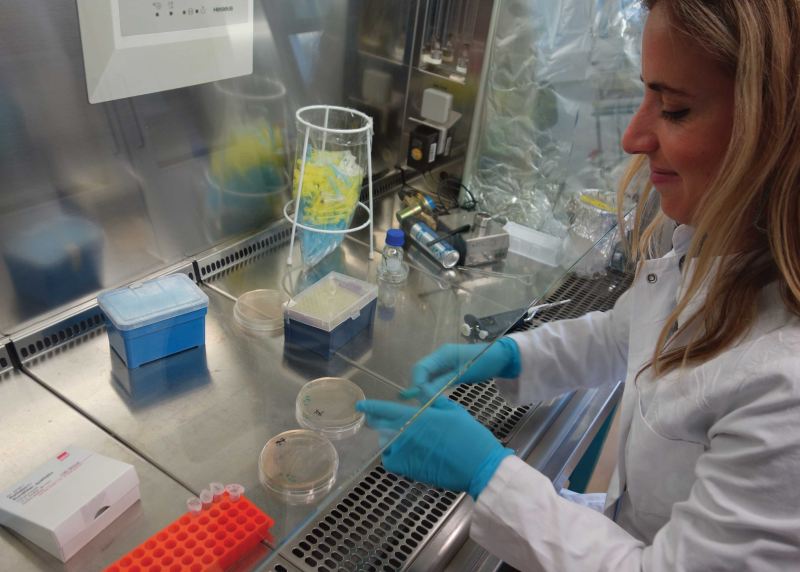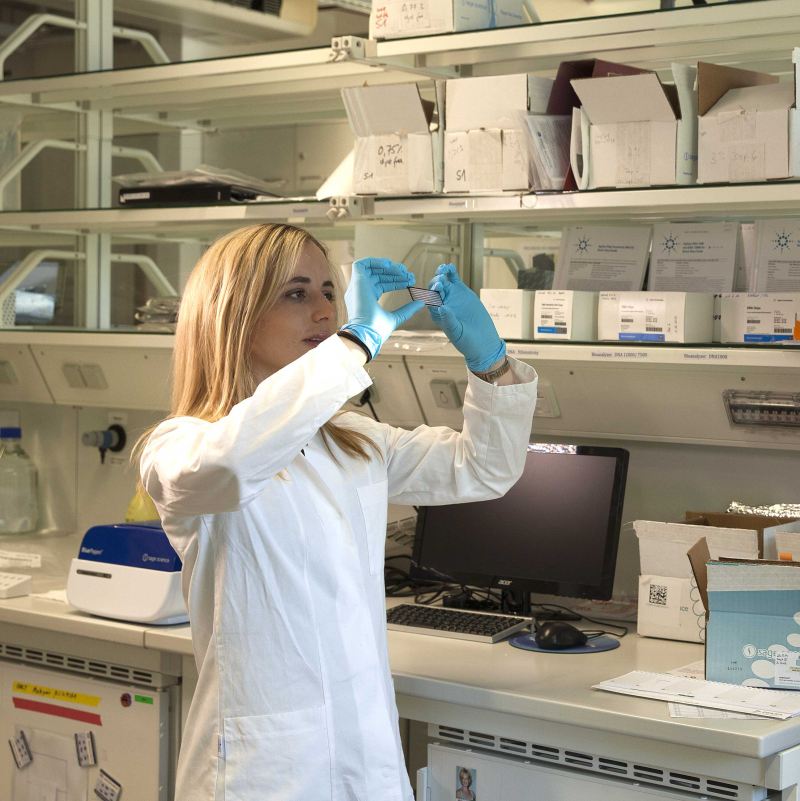


Talia Karasov, PostDoc
Hometown: Madison, Wisconsin, USA
Affiliation: MPI for Developmental Biology, Department for Molecular Biology
What are you working on?
Microbes are all
around us, evolving rapidly to colonize new environments. I study
how microbes evolve to colonize a host, either to become a
pathogen, a beneficial microbe or simply an innocuous resident. By
sequencing and studying the genomes of microbes, I identify the
genetic changes that make a microbe either a serious disease agent
or a benign colonizer. I am particularly interested in
understanding how microbes evolve to colonize different plants,
organisms whose immune systems evolve rapidly. I collect microbes
from plant populations, sequence their genomes, and test how
genetic changes affect the ability of a microbe to infect plants
and survive in other environments. Ultimately, I aim to use
sequence data to predict when a microbe is a pathogen, and the
genetic changes that make the microbe a pathogen.
Why is it interesting?
Microbes play a large part in the functioning of our world, whether
in human health, in ecosystem stability, or in food production. But
only in the last 15-20 years have we begun to appreciate the
influence microbes have on our daily life. For example, a human
body contains as many bacterial cells as human cells (if not more).
These bacteria help us to digest our food, to protect against
pathogens, while some can become pathogens. How these microbes
evolve to fill these different roles is an open question whose
answers are ripe for the picking.
Why did you decide to become a
scientist/researcher?
As a researcher, I get to spend my time pursuing questions that
fascinate me, and I have the freedom to follow my curiosities.
Really, there are so many aspects of life as a scientist that are
great for me. Surrounded by a research community and others who are
similarly intrigued by the oddities of our world, I am constantly
learning and learning broadly, whether about computer science, or
microbiology or statistics or biochemistry. Importantly, my
research findings could have the potential to improve the lives of
others, human and non-human. These different facets of life as a
scientist make the endeavor very fulfilling for me.
Your favourite thing outside of science?
A constant in my life since my youth was my love of the outdoors.
Climbing and running are two of my favorite hobbies. I try to do
both a few times a week. When I go on vacation, I aim for beautiful
natural places good for hiking, climbing or snorkeling. My favorite
sendentary past-time is definitely reading, whether novels or short
stories or non-fiction. A trip in which hiking and reading are
interspersedit doesnt get better.
If you could have a meaningful conversation with anyone
in the world, alive or dead, who would you want to talk
to?
Mark Twain. Of course there are too many impressive people in
history to choose rationally, but Ill choose one (of the many) who
was a human apart, seemingly able to see beyond his time. His
writings suggest to me that he was both brilliant and driven by a
moral compass, capable of seeing the world and history from many
perspectives. Also, he was jarringly funny. But then, I would also
want to talk to Abraham Lincoln. These are both very American
answers...

